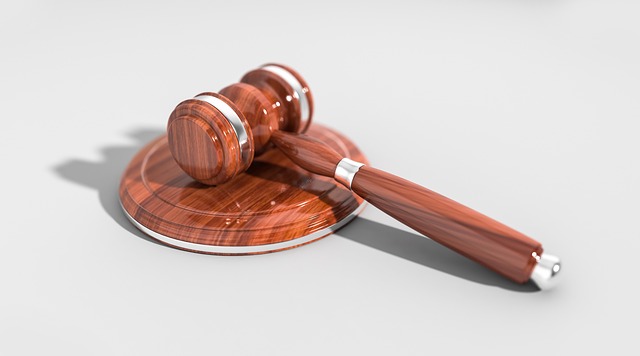The RF Securities Industry Regulation Framework safeguards market fairness and integrity by managing compensation from class action lawsuits. These regulations ensure investor protection through fair settlement distribution while holding firms accountable for fiduciary duties. Regulatory bodies investigate, secure compensation, and win cases against fraud, deterring misconduct. However, strict rules increase compliance costs, impacting service offerings, and lengthy processes follow regulatory lapses or crimes, emphasizing the need for preventive measures in securities fraud.
The RF securities industry is subject to stringent regulation aimed at protecting investors from fraud, ensuring market fairness, and promoting transparency. This article delves into the multifaceted landscape of RF industry oversight, exploring key components such as regulatory frameworks, class action lawsuits, and compensation mechanisms for victims. We analyze how regulatory bodies play a pivotal role in managing these cases, particularly focusing on the distribution of compensation from class action lawsuits and its overall impact on investors.
- Understanding RF Securities Industry Regulation Framework
- Role of Regulatory Bodies in Class Action Lawsuits
- Compensation Mechanisms: How Funds are Distributed
- Impact and Challenges of Industry Regulation on Investors
Understanding RF Securities Industry Regulation Framework

The RF Securities Industry Regulation Framework is a complex yet essential system designed to maintain fairness and integrity in financial markets. At its core, this framework ensures that securities firms and brokers adhere to strict standards when dealing with investors’ funds and information. One critical aspect of this regulation is the management of compensation, particularly in the context of class action lawsuits. These legal battles can result from high-stakes cases where investors collectively pursue damages for losses incurred due to fraudulent or negligent practices.
Understanding how compensation from these lawsuits is structured and allocated is vital. In many instances, winning challenging defense verdicts in jury trials can significantly impact a firm’s financial stability. The regulatory framework guides the process, ensuring that any settlements or awards are fairly distributed among affected investors while also providing incentives for firms to uphold their fiduciary responsibilities. This delicate balance between protecting investors and maintaining market competitiveness is key to fostering trust in the securities industry.
Role of Regulatory Bodies in Class Action Lawsuits

Regulatory bodies play a pivotal role in class action lawsuits within the RF Securities Industry. These organizations are tasked with ensuring fair and transparent practices, thereby safeguarding investors from potential fraud and misconduct. They act as watchdogs, meticulously investigating complaints and gathering evidence to determine liability. When a class-action lawsuit is initiated against securities firms or individuals, regulatory bodies often intervene, aiming to protect the interests of affected investors.
Their involvement can significantly impact the outcome of such cases. With an unprecedented track record of avoiding indictment for securities fraud, these bodies have successfully secured compensation from class action lawsuits, offering much-needed relief to victims. Through rigorous legal battles, they have demonstrated their capability to win challenging defense verdicts, ensuring that wrongdoers are held accountable and investors receive the justice they deserve.
Compensation Mechanisms: How Funds are Distributed

In the RF securities industry, compensation mechanisms play a pivotal role in shaping the dynamics between financial institutions, investors, and regulators. One significant aspect is the distribution of funds from class action lawsuits, which have become a crucial tool for holding companies accountable for misconduct. These lawsuits not only provide compensation to aggrieved investors but also serve as a powerful deterrent against future white-collar and economic crimes. The proceeds from successful litigation are typically allocated to various parties, ensuring that investors receive a fair share of the recovered funds.
Achieving extraordinary results in such cases is no trivial feat, given the complex legal landscapes involved. However, with an unprecedented track record of success, industry experts have developed innovative strategies to navigate these challenges effectively. This has led to more substantial settlements and enhanced investor protection, reinforcing the integrity of the securities market.
Impact and Challenges of Industry Regulation on Investors

The regulation of the RF securities industry significantly shapes the landscape for both corporate and individual clients. Stringent rules are designed to protect investors from fraud, manipulation, and unfair practices, ensuring markets remain fair and transparent. However, these regulations also introduce challenges. Complex laws and increased compliance burdens can raise costs for financial institutions, potentially impacting their ability to offer competitive services. This may, in turn, affect the accessibility of investment opportunities for everyday investors, as firms look to balance regulatory adherence with affordability.
Moreover, the impact of industry regulation extends beyond operational aspects. Class action lawsuits, often a result of regulatory lapses or white-collar and economic crimes, can have far-reaching consequences. Investors may receive compensation from such lawsuits, but the process is lengthy and complex. Across the country, cases involving securities fraud have led to significant financial recoveries for affected parties, demonstrating the power of regulation in holding wrongdoers accountable. Yet, these legal battles also highlight the need for proactive regulatory measures to prevent such instances from occurring in the first place.
The regulation of the RF securities industry plays a pivotal role in safeguarding investors, as evidenced by the comprehensive framework and active involvement of regulatory bodies. By understanding these regulations, we can appreciate how they navigate complex class action lawsuits, ensuring fair compensation mechanisms for affected investors. This process is crucial in gauging the impact and challenges of industry-wide regulation, ultimately fostering a more transparent and protective environment for all participants. Furthermore, recognizing the distribution of compensation from class action lawsuits underpins the importance of robust industry oversight, which, despite its complexities, remains essential for long-term investor confidence.






